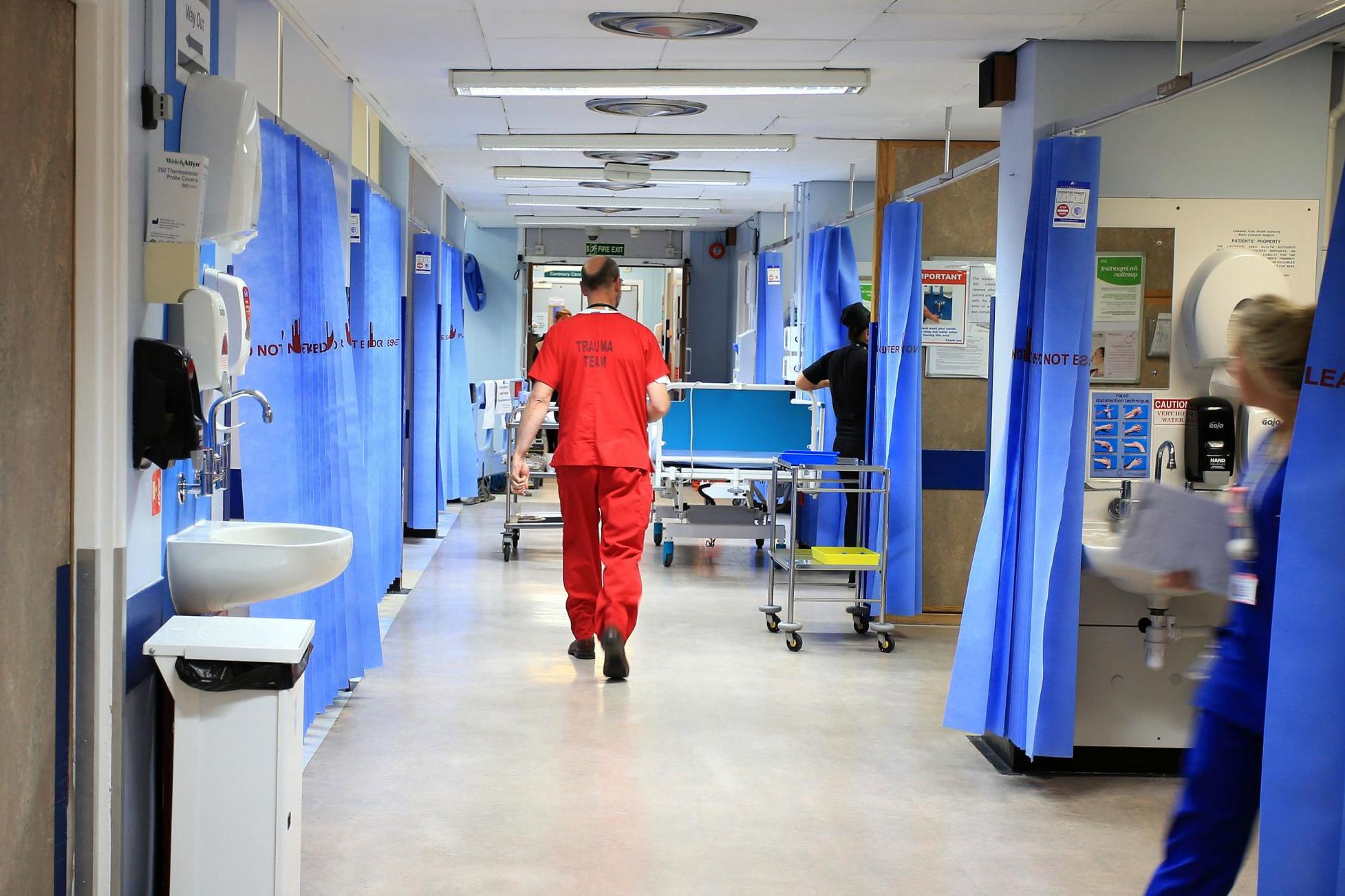NHS: Short term fixes leaving parts of health service 'financially unstable', watchdog warns
Alarm over health service's ability to meet rising demand amid funding pressures

Your support helps us to tell the story
From reproductive rights to climate change to Big Tech, The Independent is on the ground when the story is developing. Whether it's investigating the financials of Elon Musk's pro-Trump PAC or producing our latest documentary, 'The A Word', which shines a light on the American women fighting for reproductive rights, we know how important it is to parse out the facts from the messaging.
At such a critical moment in US history, we need reporters on the ground. Your donation allows us to keep sending journalists to speak to both sides of the story.
The Independent is trusted by Americans across the entire political spectrum. And unlike many other quality news outlets, we choose not to lock Americans out of our reporting and analysis with paywalls. We believe quality journalism should be available to everyone, paid for by those who can afford it.
Your support makes all the difference.The NHS has become too dependent on "short-term fixes" to fund critical services, leaving parts of the health service seriously financially unstable, the spending watchdog has warned.
The National Audit Office sounded the alarm over the ability of the NHS to meet rising demand in two new reports, which come after A&E waiting times hit record levels in December, with one in five people seen outside of the four-hour limit.
The watchdog found NHS trusts were more than £827m in the red and clinical commissioning groups had failed to balance the books, leaving them reliant on short-term funding boosts or one-off savings.
Extra cash from the government to stabilise the finances of individual NHS bodies has not been fully effective, the NAO said, pushing them into nearly £11bn of debt and forcing them to rely on short-term loans from the Department of Health and Social Care.
Gareth Davies, head of the NAO, said: "The short-term fixes that were introduced to manage the NHS' finances are not sustainable.
"The Department of Health and Social Care continues to provide some trusts with short-term loans just to meet their day-to-day costs with little hope they will be repaid.
"This is not a sustainable way to run public bodies."
Over the past five years the government had transferred £4.3bn from capital to revenue budgets "to cope with day to day pressures facing the NHS", building up a £6.5bn backlog of maintenance work on crumbling hospitals.
Some 14 per cent of NHS buildings predate the founding of the health service in 1948, the report said.
Meg Hillier, chair elect of the public accounts committee, said: “The health service is addicted to unacceptable short-term fixes to cover the fact that it is not tackling long-standing issues.
“Hospitals have built up loans they’ll never repay, workforce shortages continue and waiting times are getting longer.
"There is no long-term plan for social care in sight, but what is clear is the lack of investment in public health, equipment, and buildings.
“It is the start of a new parliament and the department needs to urgently get a grip and wisely use the new money it’s been given.”
Shadow health secretary Jonathan Ashworth said the report laid bare the damage caused by ten years of "Conservative underfunding and under resourcing" for the NHS.
"The ever lengthening queues of the sick and elderly in our constituencies deserve so much better," he added.
Anita Charlesworth, director of research and economics at the Health Foundation, said: "The NAO has sounded a timely warning bell about the significant financial and operational challenges facing the NHS.
"Even with the government’s proposed investment, the health service will struggle to maintain current levels of patient care in the face of growing demand, let alone deliver the ambitious improvements to services promised by the NHS Long Term Plan."
Theresa May announced a long-term funding settlement in 2018 to boost NHS England's budget by an average 3.4 per cent a year over the next five years.
Boris Johnson put the NHS at the heart of his 2019 election campaign and one of his first acts on entering Downing Street was to enshrine NHS funding in law.
But critics have warned that the cash boost may only act as a sticking plaster, with pressure on the NHS only exacerbated by the failure to find a solution to the social care crisis.
A Department of Health and Social Care spokesperson said: “We are enshrining in law our record cash boost for the NHS, worth £33.9bn extra a year by 2023/24 and we are determined to support the NHS to become financially sustainable.
“In the past, decisions over health capital have been too piecemeal and uncoordinated so through our Health Infrastructure Plan we are taking a more strategic, planned approach.
“Since last summer we have significantly boosted capital investment to modernise the NHS estate, tackle critical safety issues and deliver 40 new hospitals over the next ten years, backed by at least £4.8bn.”
Join our commenting forum
Join thought-provoking conversations, follow other Independent readers and see their replies
Comments